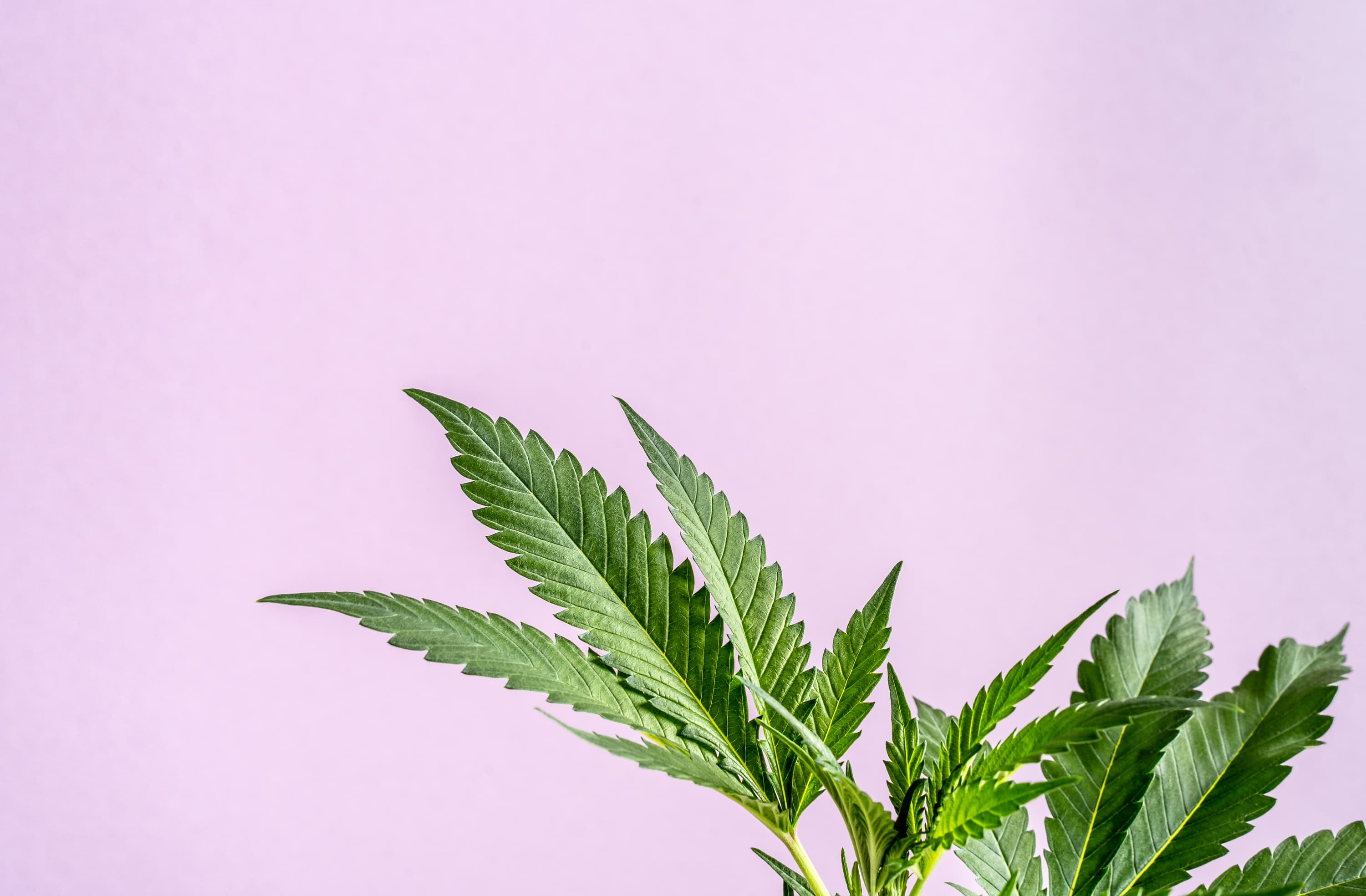This website will offer limited functionality in this browser. We only support the recent versions of major browsers like Chrome, Firefox, Safari, and Edge.

It’s a question we get asked a lot: how does marijuana affect sex? There are lots of anecdotes, headlines and marketing claims out there, and, of course, marijuana isn’t legal in every state, which can make getting clear, factual information difficult. We’re here to share what we know – and what we don’t.
“The challenge with marijuana – and this goes for it in all aspects of medicine – is that there just haven’t been a lot of studies, because it’s been illegal for the vast majority of the time,” says Rosy Founder, Lyndsey Harper, MD. “And now that it’s legal in some states, and available medicinally in more states, we’re starting to understand a little bit more, but the data is still very limited.”
Add to this the complexities of studying sexual pleasure – the myriad of cultural, emotional, psychological and physical factors that affect our ideas about what good sex is, and you can begin to see why this is such a tricky topic to explore.
What does marijuana do to your libido?
One of the big claims being made is that marijuana can boost your libido. To understand how this might work, Dr. Harper stresses we first need to understand the two systems that are at play: “One is hormones, which we talk about a lot, but what’s also really important are the neurotransmitters in the brain,” she explains. “These work specifically to send us messages about mood, pleasure, sleep, and there are also neurotransmitters that inform the way that we experience and maybe even desire sex.”
It is thought that that’s the pathway marijuana takes: potentially decreasing inhibition, stress and anxiety. One 2019 study showed that women who used marijuana before sex reported increases in sex drive, improvements in orgasm and a decrease in pain.
However, this is a self-reported study, which asked patients to recall their experiences after the fact. Any studies to date have effectively been similar: asking people how they felt getting high affected their sexual enjoyment, which, for a psychogenic drug, is a less than ideal method of research.
It’s important to bear this in mind whenever you read any claims about how marijuana can affect our sex life; though there are lots of positive indicators, no large, standardized body of research exists, and the studies we do have are small questionnaire or interview ones (and often focused mainly on the experiences of men – in one 1979 study, a whopping 78 percent of respondents were male).
In the studies, there is no way of corroborating what respondents have said or even to test the drug or strain they were using, and the studies didn’t take place in a controlled environment, which makes it difficult to come to any real conclusions. “We don’t have these big studies like we do for FDA-approved medications,” explains Dr. Harper. “So the data is not as robust as we would like in order to conclude any hard and fast answers.”
Let’s talk about stress
For Dr. Harper, exploring how marijuana affects sex is as much about understanding the factors that affect, inhibit and enhance your desire as much as anything else. “Stress is the number one killer of desire,” she says. “So if there is something that we know reduces stress, then you could infer that that would also improve those things as well because it’s decreasing your inhibitions and allowing you to be more present in your body.”
While this can be read as good news for those curious about using marijuana, it’s vital to look at the bigger picture of how stress is affecting your sex life. “It’s similar to how I wouldn’t tell women to drink a glass of wine to relax,” says Dr. Harper. “We want to approach things holistically. My preference would be to learn about stress-reduction techniques, about mindfulness, about scheduling your day and your life to get a better handle on things.”
Similarly, when it comes to sexual pain, Dr. Harper stresses that you should always explore the root cause before turning to alternative therapies: “The last thing we want is someone with severe endometriosis or someone with vaginismus or vestibulodynia to be using marijuana to get over it when we have real treatments for those problems,” she says. “I could see it used as an adjunct, maybe during therapy or even after, but not as a treatment alone.”
Mixing marijuana and sex? Here’s what you need to know
For the most part, people who feel marijuana enhances their sexual pleasure are already using it, and are already familiar with how it affects them. “Usually people are not considering it as a treatment if they haven’t already been using marijuana,” says Dr. Harper. “So it’s important to remember that some people can have bad reactions – they might become anxious or paranoid and we wouldn’t know before that it could potentially make things worse for them.”
She recommends approaching it like you would any other treatment: in conjunction with education about your body and how pleasure works and weighing up the potential risks and benefits. “I would view it as part of a much more holistic plan – it’s not a one-size-fits-all thing,” says Dr. Harper. “We have to decide for ourselves as women, what is our path to our sexual wellness? Maybe for someone, they could add marijuana safely and effectively, but for someone else, it might have negative side effects, and we don't have long-term data on what those side effects might be.”
The only thing we really know is that more research is needed: “The more we know about these pathways and about the way that women’s bodies work in regards to whatever intervention we’re trying – whether it's mindfulness, erotica or marijuana – the better, and having standardized objective measurements is really what we need.”
Latest On XOXO Blog

Foods That Love Your Heart Back: A Dietary Guide to Cardiovascular Wellness
What you eat every day has the power to strengthen your heart—or strain it. Here’s how to make every bite count.

Stress vs. Burnout: How to Spot the Difference and Recover
Feeling constantly exhausted, unmotivated, and overwhelmed? You might be dealing with more than just stress—burnout could be the culprit.


